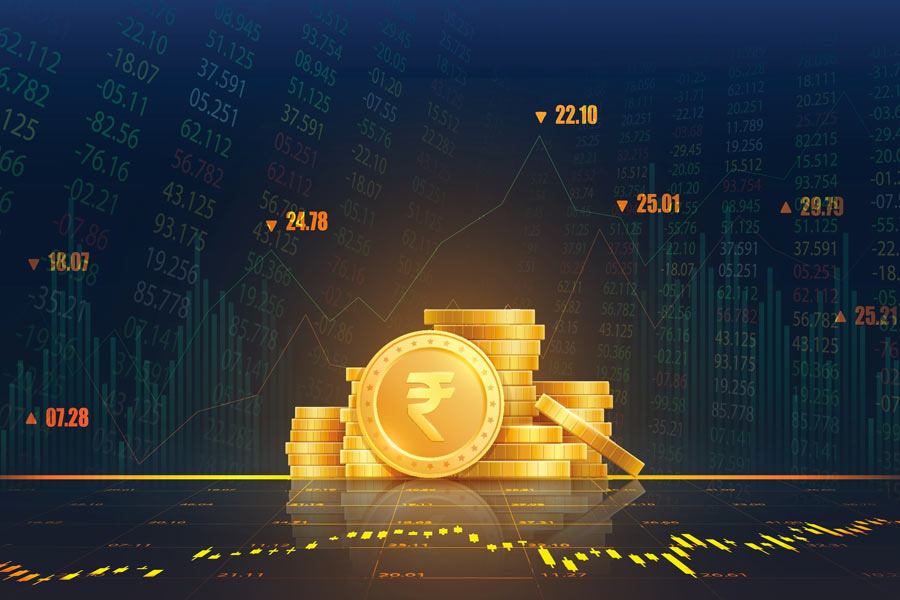The rupee pared its initial losses and settled for the day on an almost flat note at 83.50 (provisional) against the US dollar on Thursday, resisting pressure from elevated crude oil prices.
Forex traders said a positive trend in domestic equities, wherein benchmark indices touched all-time high levels, and significant foreign fund inflows supported the rupee and restricted the fall.
At the interbank foreign exchange market, the local unit opened at 83.52 and hit the intraday high of 83.48 and a low of 83.56 against the American currency during the session.
It finally settled at 83.50 (provisional) against the dollar, 1 paisa lower than its previous close.
On Wednesday, the rupee settled 1 paisa lower at 83.49 against the US dollar.
"We expect the rupee to trade with a slight positive bias on softness in the US dollar amid weak economic data and rise in risk appetite in global markets," said Anuj Choudhary – Research Analyst at Sharekhan by BNP Paribas.
"However, elevated crude oil prices may limit the gains. Investors may remain cautious ahead of the US non-farm payrolls report tomorrow," Choudhary said, adding that USD-INR spot price is expected to trade in a range of Rs 83.20 to Rs 83.80.
Meanwhile, the dollar index, which gauges the greenback's strength against a basket of six currencies, was trading 0.15 per cent lower at 105.24.
Brent crude futures, the global oil benchmark, were trading 0.47 per cent lower at USD 86.93 per barrel.
In the domestic equity market, Sensex breached the historic 80,000-mark and Nifty scaled a fresh lifetime high. The 30-share BSE Sensex ended the day 62.87 points, or 0.08 per cent, up at its all-time high of 80,049.67 points. The broader NSE Nifty settled 15.65 points, or 0.06 per cent, higher at a fresh peak of 24,302.15 points.
Foreign Institutional Investors (FIIs) were net buyers in the capital markets on Wednesday, as they purchased shares worth Rs 5,483.63 crore, according to exchange data.
Meanwhile, according to an official of S&P Global Ratings, a sovereign rating upgrade for India in the next 24 months is possible if the central government is able to prudently manage its finances and bring down the fiscal deficit to 4 per cent of GDP.
S&P Global Ratings Director, Sovereign Ratings, YeeFarn Phua, said the trigger for an upgrade would be the government (Centre + states) deficit falling below 7 per cent of the GDP, and a lot of this would have to be driven by the central government.
Except for the headline, this story has not been edited by The Telegraph Online staff and has been published from a syndicated feed.











